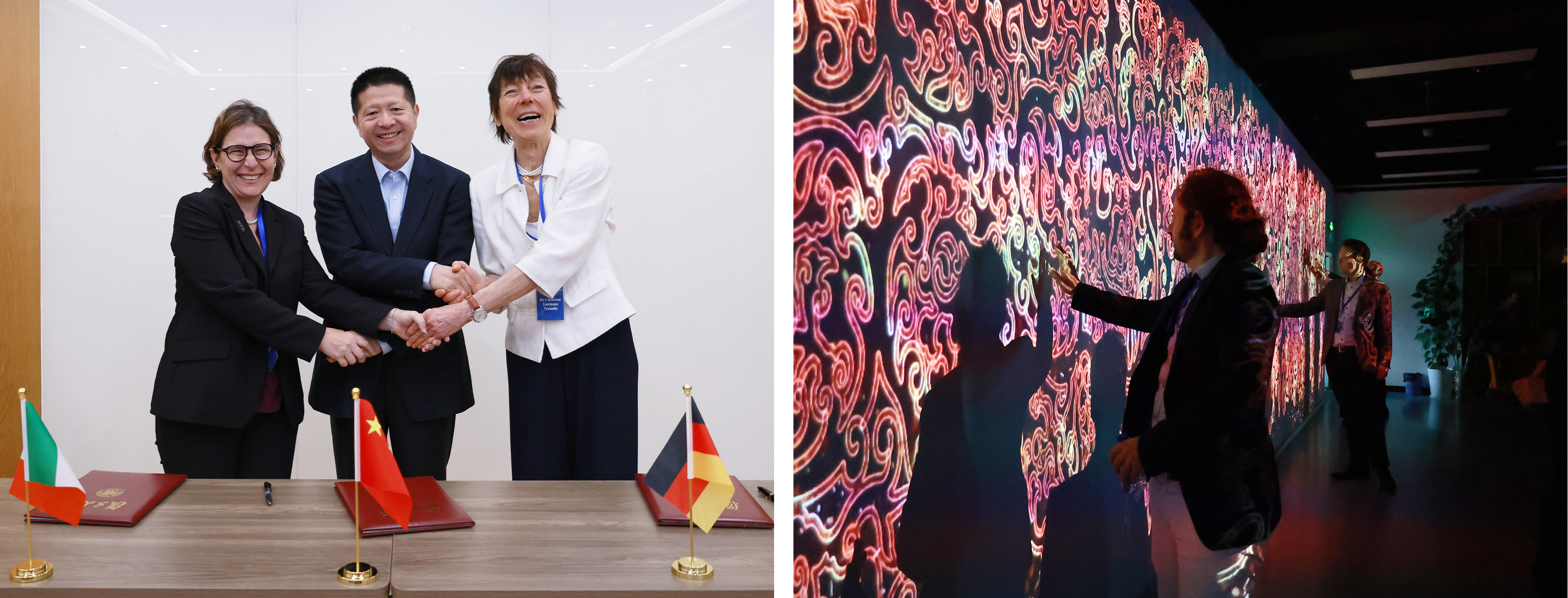
From May 25 to 28, 2025, the academic conference “China–Europe Dialogue on Culture and Global Governance” was successfully held at Fudan University. The event was jointly organized by the Institute for Global Public Policy (IGPP) at Fudan University, the Germany–Italy European Dialogue Centre (Villa Vigoni), and the Treccani Institute, co-hosted by the LSE-Fudan Research Centre for Global Public Policy. Experts, scholars, and students from Fudan University, Villa Vigoni, the Treccani Institute, and many universities worldwide convened to engage in in-depth discussions on cutting-edge issues related to China–Europe culture and global governance.
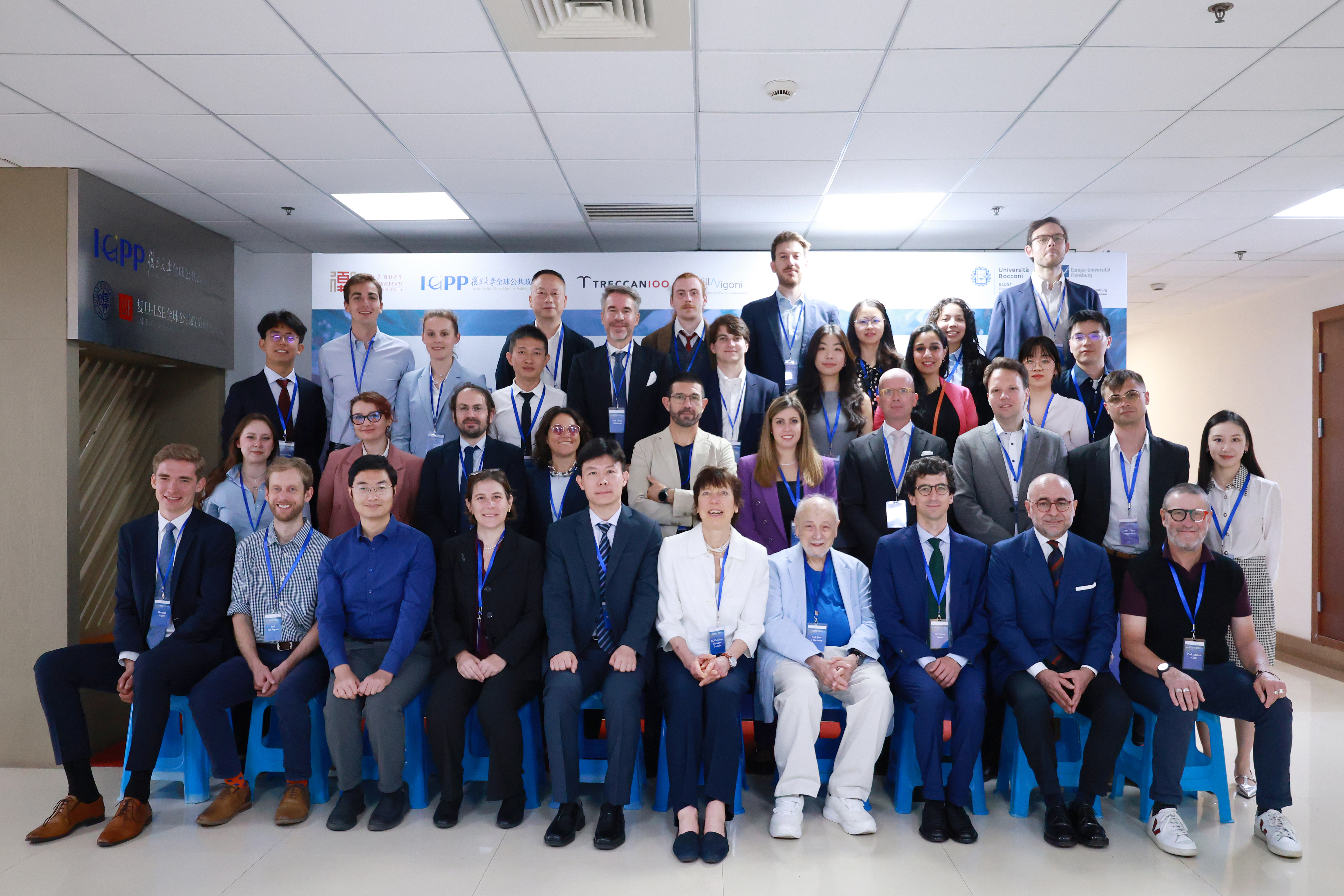
At the opening ceremony, Dean Yijia Jing of IGPP delivered a welcome speech. He pointed out that the world today is undergoing profound transformations and facing multiple challenges. Holding this joint Sino-European academic seminar in such an uncertain era aims to promote cross-cultural dialogue, deepen mutual understanding, and inject diverse perspectives and wisdom into global governance. Professor Marta Leonori, Head of Management Area at the Treccani Institute, and Dr. Christiane Traniello, General-Secretary of Villa Vigoni, also gave remarks. They expressed gratitude for Fudan University’s warm hospitality and looked forward to the conference playing an active role in advancing cultural exchange and academic cooperation among China, Germany, and Italy.
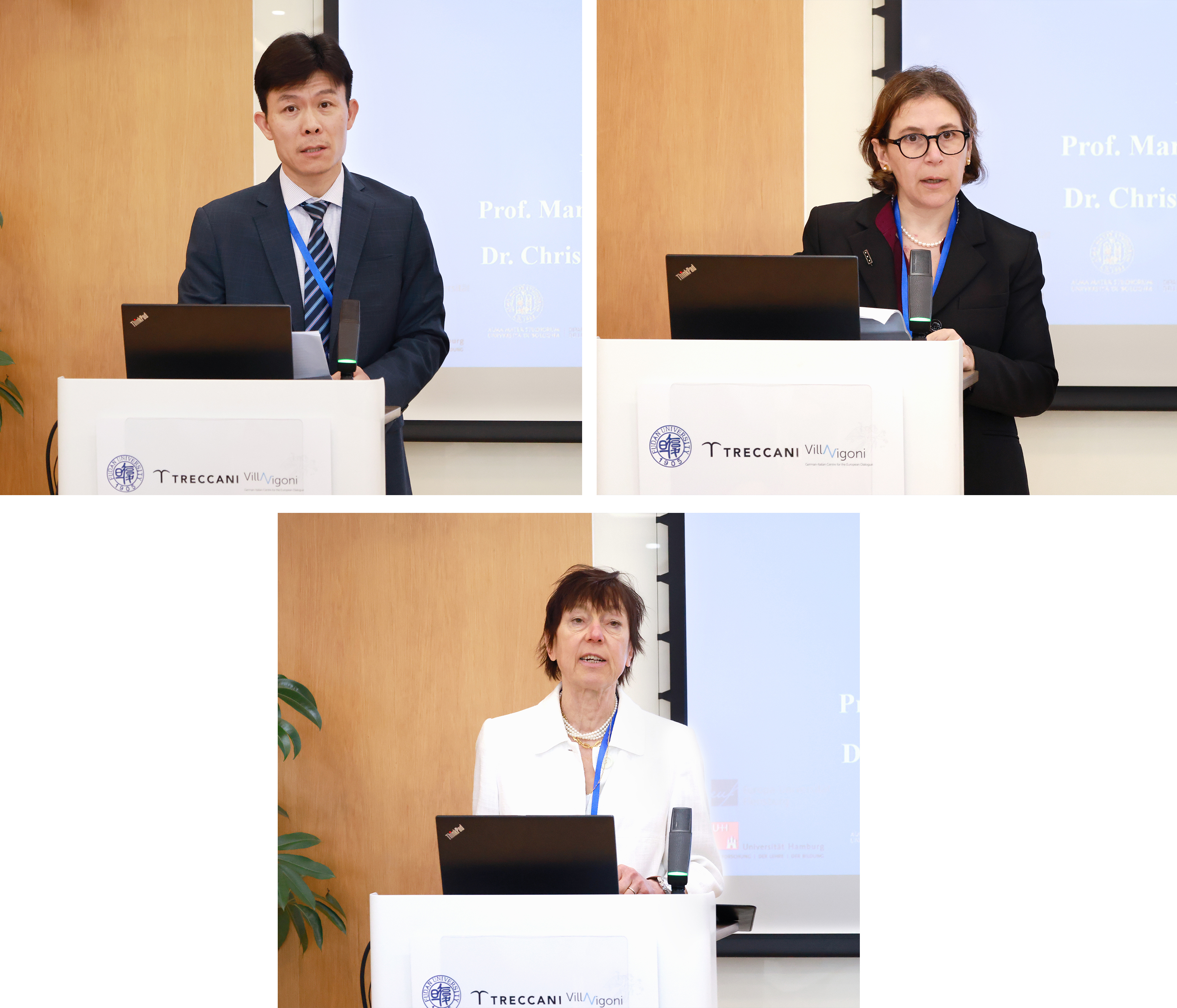
During the conference, four panel were held, covering topics including cultural diplomacy, culture of global governance in China and EU, and the role of culture between deglobalization and global governance.
The first panel focused on “Cultural Diplomacy in the New Global Context –China and EU.” Associate Professor Yudan Chen from the School of International Relations and Public Affairs (SIRPA) at Fudan University explored China’s contribution to the aesthetic turn in international relations theory. Professor Markus Kotzur from the University of Hamburg analyzed the strategic options and challenges for the cooperation between the EU and China. Professor Ulrich Glassmann from University of Flensburg compared the growth strategy pathways of China and the EU. Dr. Francesco D’Arelli from Istituto Italian Cultura presented cultural diplomacy and the role of Treccani in Italia-China dialogue. This panel was moderated by Bert Rockman, a visiting scholar at IGPP and Professor Emeritus of Purdue University.
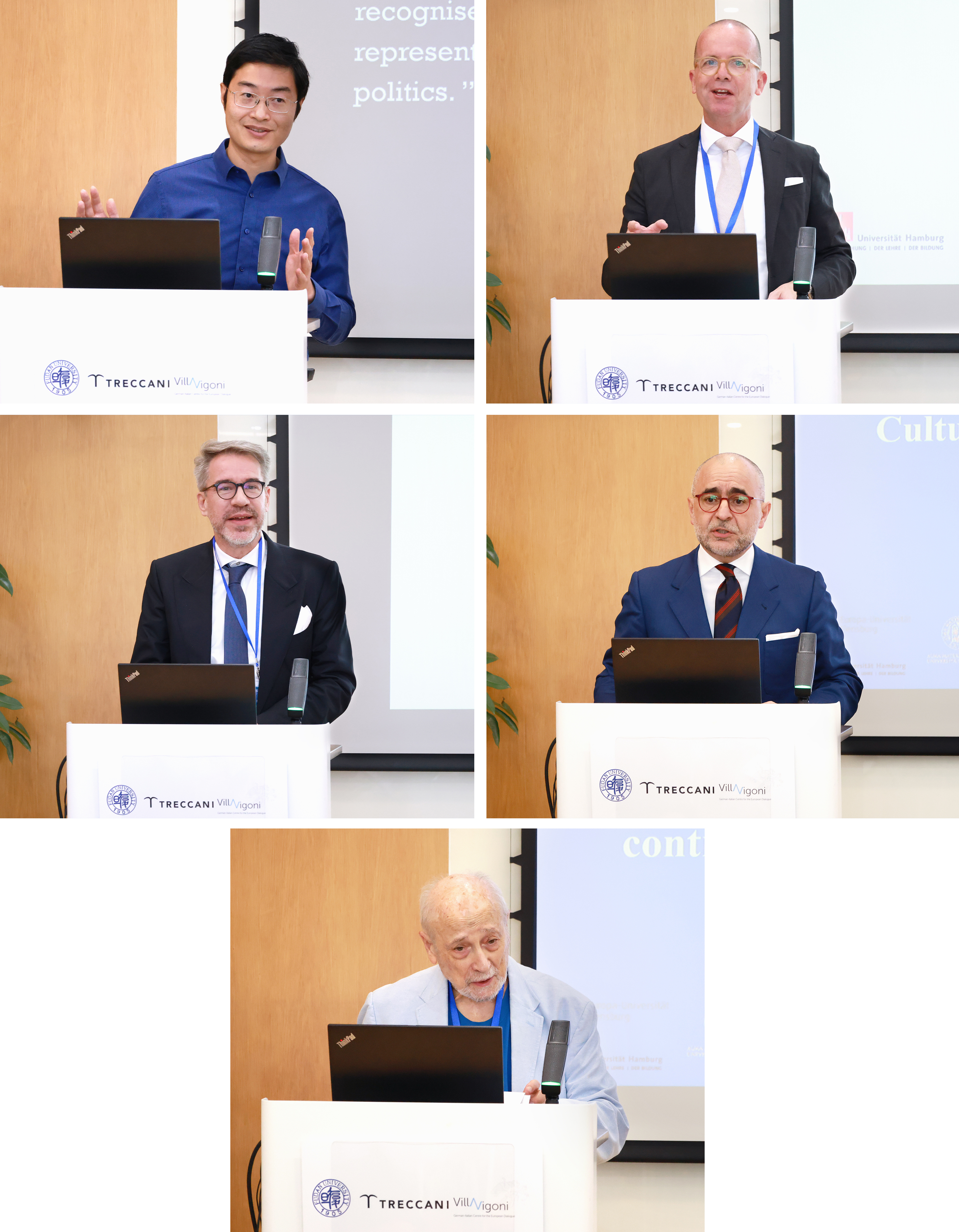
The second panel centered on “Concepts in Transition - China’s Culture of Global Governance.” Professor Andrea Colli from Bocconi University reviewed China’s historical journey from national humiliation to a global power. Professor Xi Lin from Fudan Institute for Advanced Study in Social Sciences discussed harmony in diversity through mutual appreciation. Associate Professor Tom Pegram from University College London examined normative contestation and the pluralization of global governance. This panel was moderated by Associate Professor Ping Jiang from the Department of Environmental Science and Engineering.
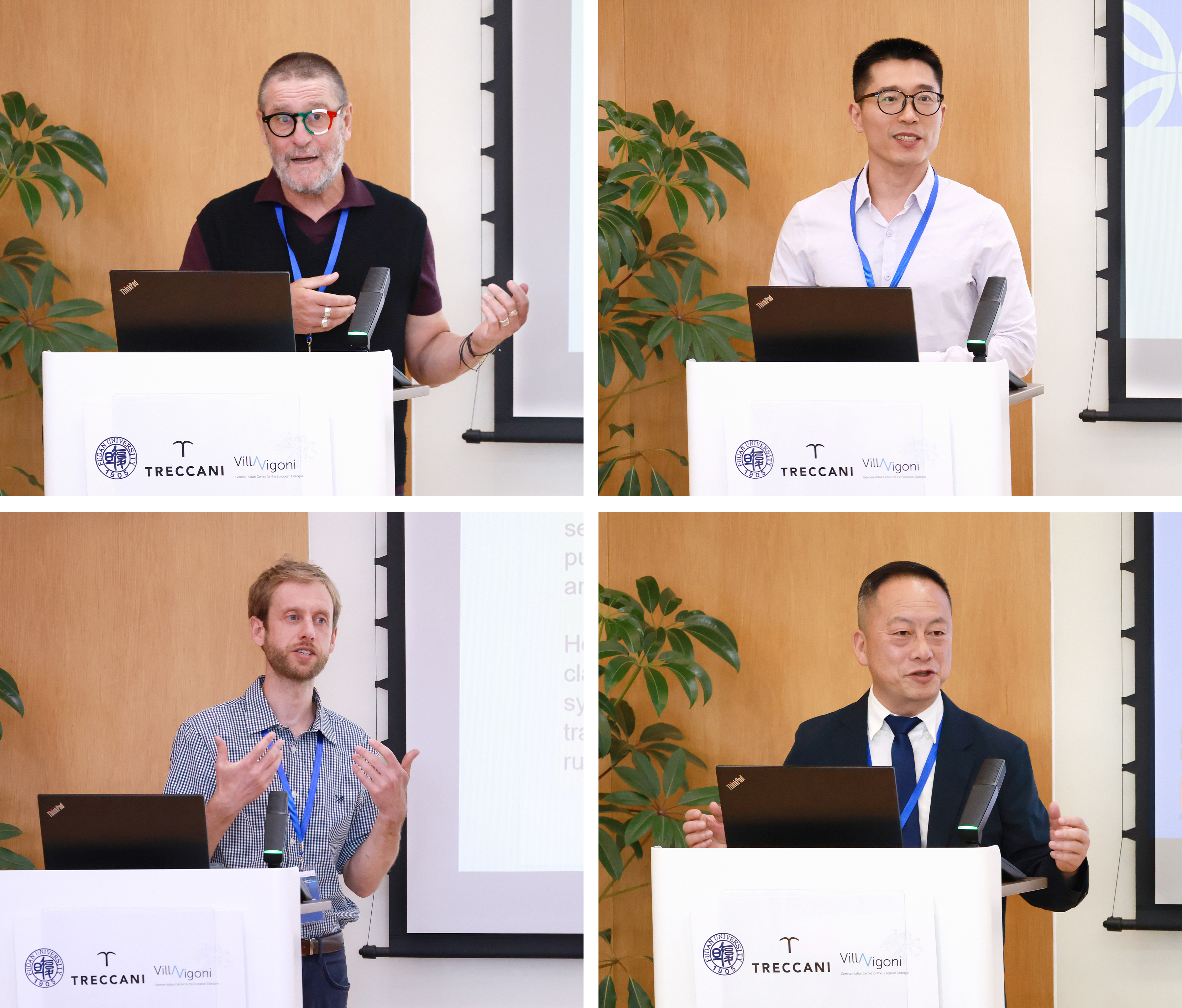
The third panel discussion focused on “Concepts in Transition – EU’s Culture of Global Governance.” Professor Junbo Jian, Director of Center for China–Europe Relations at Fudan University, analyzed chances and challenges of EU’s transition from normative power to geopolitical power. Professor Ulrich Glassmann further discussed centre-periphery dynamics in the EU and European policy responses. Dr. Matteo Scotto from Villa Vigoni discussed the return of history and the new Multilateralism, focusing how nation-states are changing in EU. Professor Ubaldo Villani-Lubelli from the University of Salento traced the changes in global governance in EU. This panel was moderated by Professor Marta Leonori.

The fourth panel addressed “New Way Forward: The Role of Culture between Deglobalization and Global Governance.” Professor Andrea Colli reviewed the relationship among globalization, deglobalization, and geopolitics from a historical perspective. Professor Tongdong Bai from the School of Philosophy at Fudan University proposed a Confucian new “Tianxia” model that transcends nation-states and cosmopolitanism. General-Secretary Traniello explored the meaning of “Empire” through a re-interpretation of Dante’s De Monarchia. Associate Professor Gennaro Imbriano from the University of Bologna discussed world systems and multipolarity from historical and philosophical viewpoints. Professor Lihong Zhang from East China University of Political Science and Law critiqued Huntington’s “clash of civilizations” theory and highlighted the positive contributions of Chinese culture to global governance. This panel was chaired by Professor Alessandra Beccarisi from Villa Vigoni and the University of Salento.

The conference also featured a student presentation and discussion session, where young participants from Fudan University, Villa Vigoni, the Treccani Institute, and several international universities engaged in dialogue. Their active participation reflected the younger generation’s deep concern and thoughtful engagement with global governance challenges.
At the closing ceremony, Dean Jing, Professor Leonori, and General- Secretary Traniello delivered remarks, expressing heartfelt gratitude for the outstanding presentations and enthusiastic participation of all experts and scholars. They also conveyed strong anticipation for future collaboration among Fudan University, Villa Vigoni, and the Treccani Institute. Giovanni Bray, an IGPP alumnus, gave a brief speech expressing gratitude to his alma mater and hoped for further cooperation between Fudan and its European partner universities.
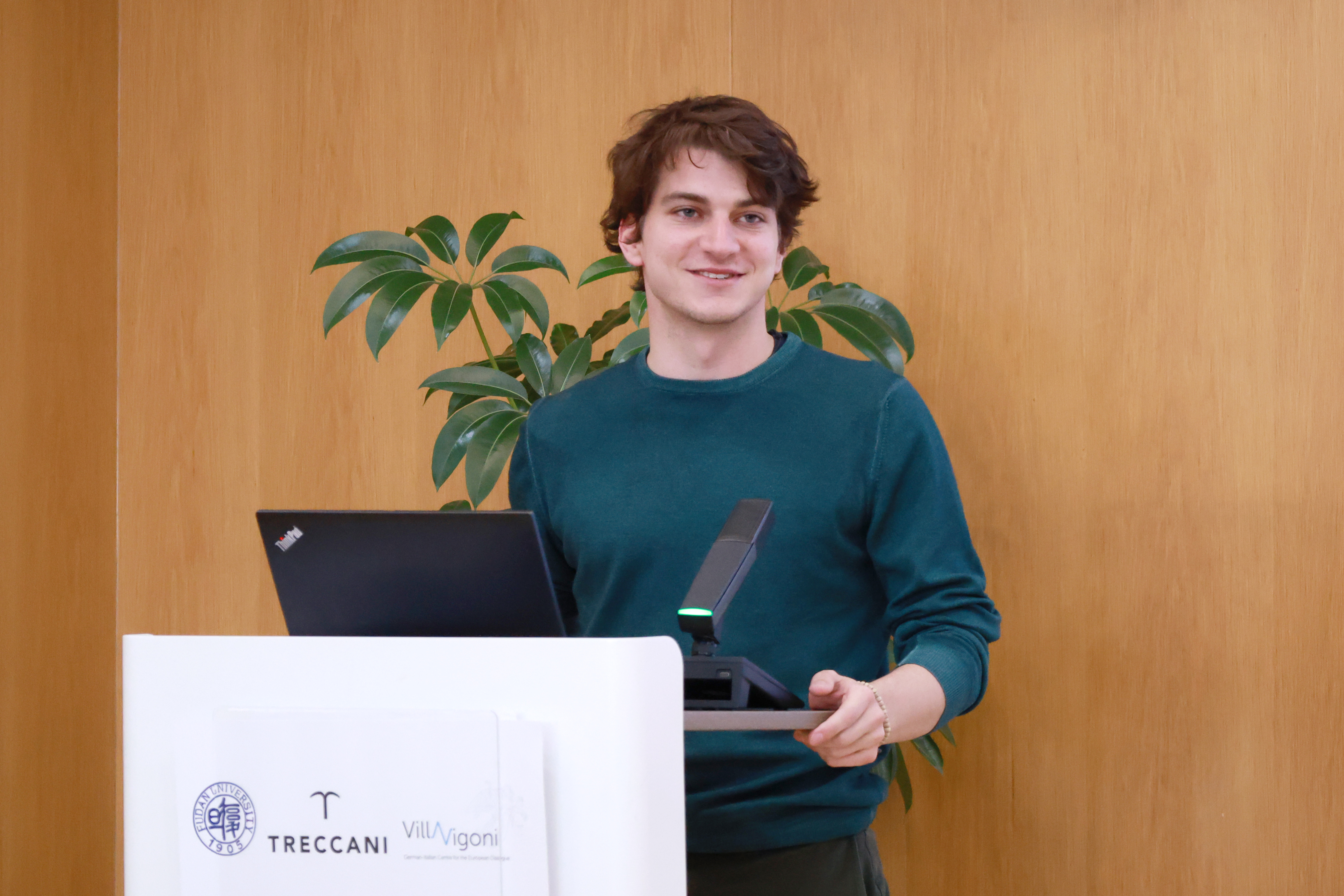
Coinciding with the 50th anniversary of China-Europe diplomatic relations and the 120th anniversary of Fudan University, the conference featured a series of cultural and exchange activities. On the afternoon of May 26, Fudan University, Villa Vigoni, and the Treccani Institute formally signed a Memorandum of Understanding. Xin Qiu, Chairman of the University Council; General-Secretary Traniello of Villa Vigoni; and General Director Massimo Bray of the Treccani Institute, signed on behalf of their respective parties. At noon of the same day, the German and Italian delegations visited Meta-Innovation Hub at Handan Campus of Fudan University. They viewed the digital exhibition “Carving & Painting Han Rhyme” designed and implemented by Professor Qiuxia Chai’s team. On May 28, the delegation also toured the “Fudan Root” exhibition to trace the university’s historical legacy over the past century.
